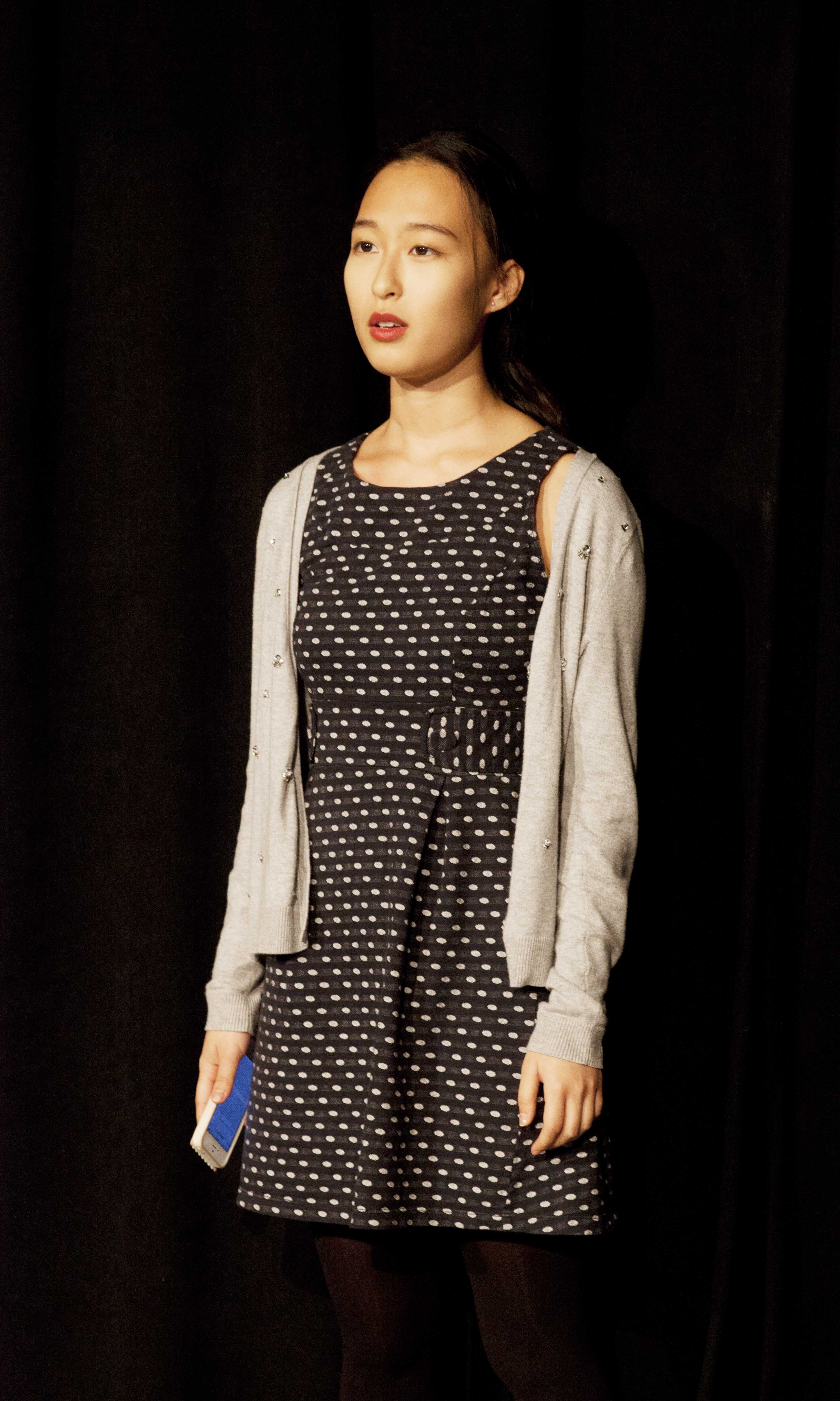
It is Monday night in Calhoun Cabaret, and Jook Songs, Yale’s Asian-American spoken word group, opens for Jess X. Chen and Will Giles’ Asian American Pacific Island Poetry Tour. The stage glows as three undergraduate poets deliver their pieces; each performance is a seed of truth, delivered with rare emotional audacity. The show is graced with a good audience. There is tangible warmth in the clapping, dense snaps and even some moans (always a staple) here and there. This is performance poetry: the poets give themselves to the audience, the audience gives themselves to the poets. Put everything from joy to rage in a room and people will listen — people will be honest for once. When the last student poet finishes her poem, an expectant hush fills the cabaret. Last Words * First Songs has begun.
Why Last Words? Why First Songs? Later, Jess and Will explain why they chose this particular title for their tour. It is a testament to the resilience of the immigrant experience, or the act of leaving and starting all over again; it is a testament to generations of blood.
Will starts the show. “How do you stand when your roots have been burned away?” he asks as he stares directly into the stage lights. He navigates colonial oppression, particularly the U.S. occupation of Hawaii and the Samoan Islands. He confronts his own immigrant identity as a second-generation Samoan-American and reflects on the past generation’s pain of what to do “when you are forced to choose whether to put your children in culture or clothing.” Will is fearless in his confrontation of both the burden and blessing of bloodline. He ends one of his pieces with “I am the blood that I want.” Will insists on reclaiming space; he sheds and claims parts of himself onstage. He is unafraid to revisit pain, to leave it. Halfway through the show, he jokes, “After performing each poem, I imagine being a snake and saying, ‘I’m done with this body!’”
When Jess X. Chen walks onstage, no one knows what to do. Even snapping seems too half-hearted — we resort to thunderous applause. Jess has a piercing gaze that is not only soulful but also has the power of holding the audience accountable. Everything about her presence asks the listener to understand the immense weight and the immense joy of her reflections. She confronts diaspora as a first-generation Chinese-American poet: “We marched on until our voices carved a canyon to the other side of the world.” She also addresses colonial trauma, the queer and colored body, and the body of the earth. Jess stops performing for a moment to tell us she believes that the radical imagination it takes families to move across borders is not unlike the radical imagination of art.
According to Jess, migration is an act of imagination, and imagination is “daring to love what is not in front of you.” When she says this, peering at us with her arms tilted upwards, I cannot help but bite my lip to keep from crying. When I look around at the other people in the room, I see other people doing the same, wiping their eyes and grinning. I hear muffled sobs in the second row.
What is it that makes us cry? After the show, I see students, mostly students of color, flocking to Jess and Will, thanking them, embracing them, trying their best to schmooze in an honest way. I am one of them. I hug both of them and thank them for their work. I tell them that I’ve always felt what they address in their pieces but I could never write it down. I am an incoherent mess. Perhaps what I want to say is, “I am so happy to see two poets of color owning a space and daring the world to love them back.” “I am so happy to see you flourishing as activists, filmmakers, artists and writers when the American arts scene is so stale with whitewashed ideals that stand upon a history of violence.” Or, “I want to be like you.”
Jess tells me to ask her for advice. “I remember when I was starting off as a writer,” she said. “It was communities like this that made it all worth it.” We leave the cabaret in a daze, some of us holding newly purchased prints; Jess is also a visual artist and sold some of her artwork. Her prints reflect the themes of her work — one, depicting a soaring bird with human figures holding hands and running beneath a night sky, struck me as a beautiful homage to the various journeys and communities immigrants make in their lives. We are all different bloodlines, walking out, and it is not an overstatement when I say it is joy we seem to feel. At the end of the show, Will told us his rules for poetry. One, be the best listener in the room. Two, love louder than you listen. I loved louder that night than I had in a long while.







